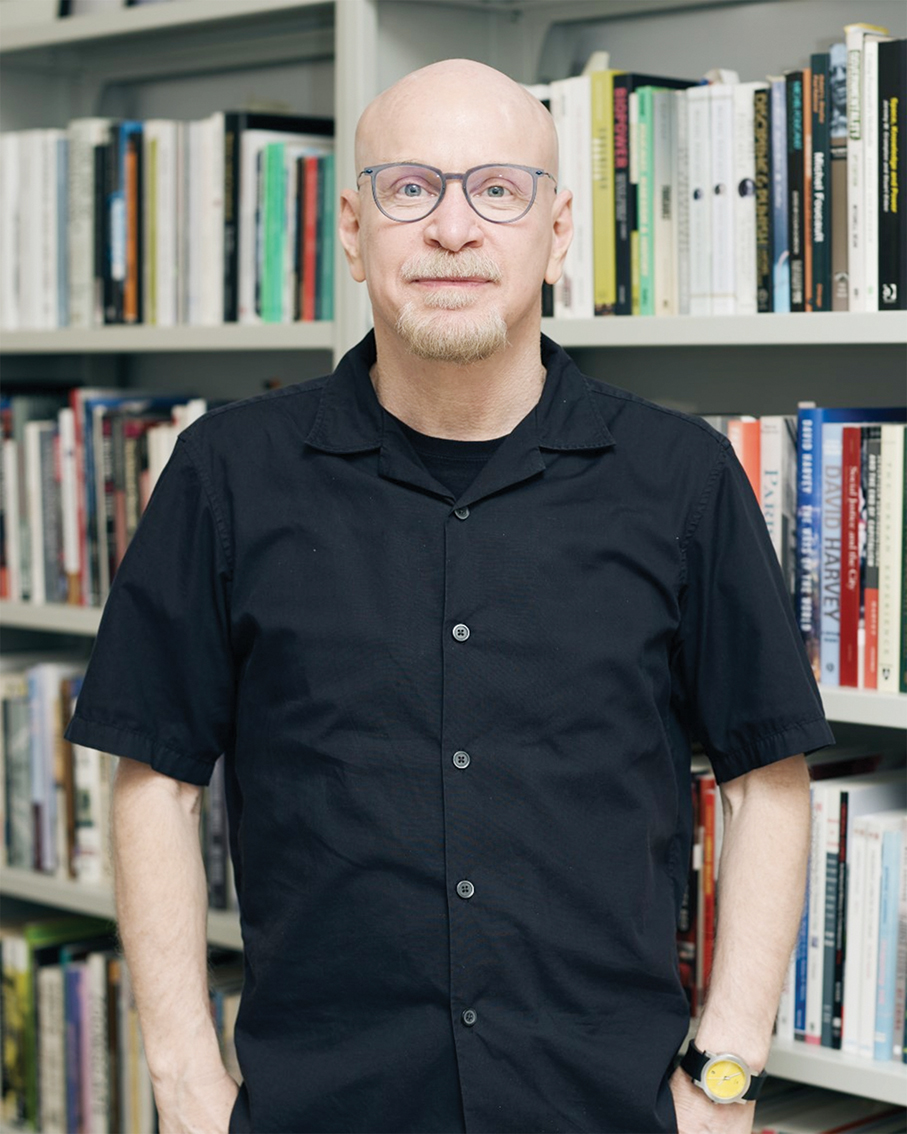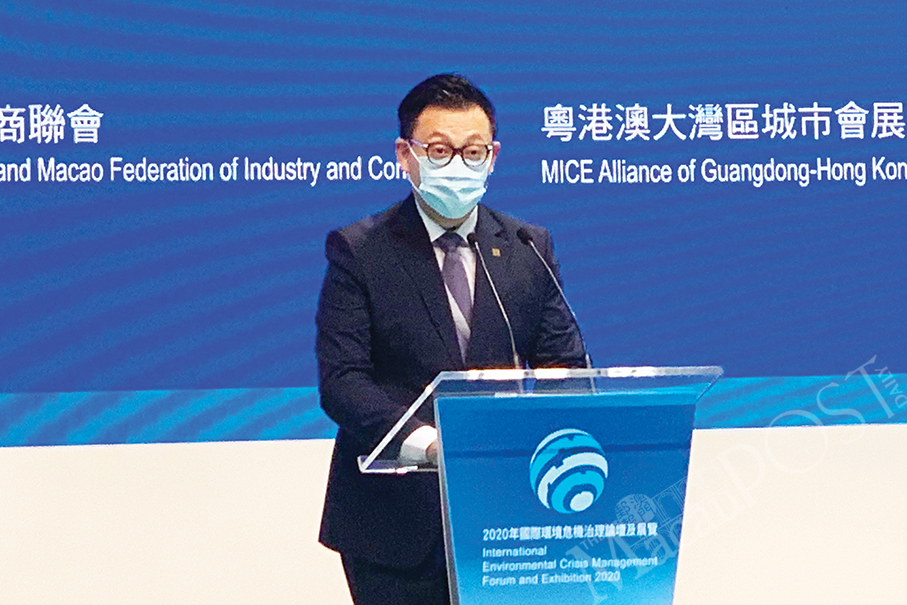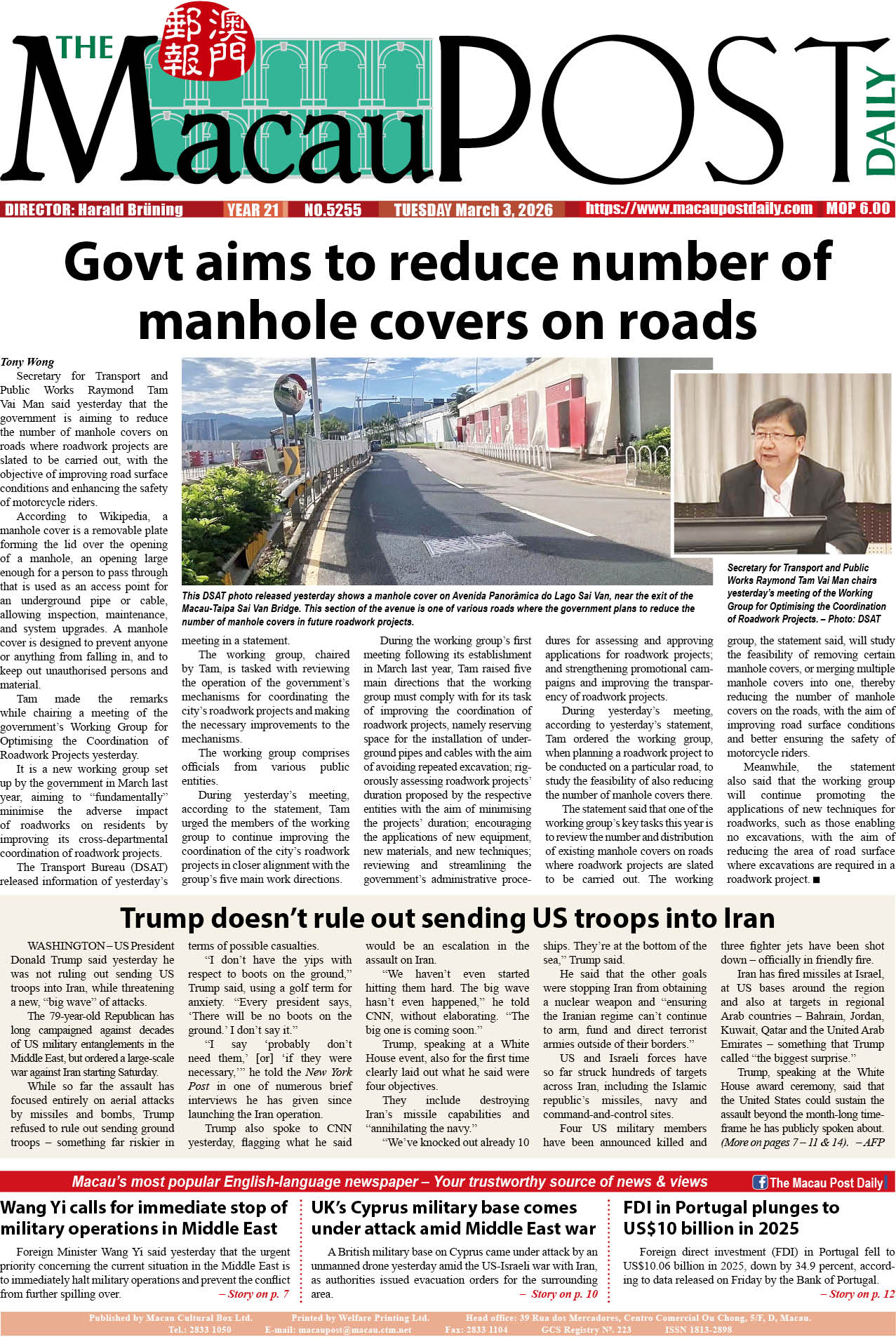A book titled “Betting on Macau: Casino Capitalism and China’s Consumer Revolution” has been published by the University of Macau’s (UM) Department of Communication Associate Professor Tim Simpson, which looks at Macau’s recent transformation into the “most lucrative site of casino gaming”, the tertiary education institution said in a statement yesterday.
The book, which was published in conjunction with the University of Minnesota Press, also examines Macau’s formative role in the Chinese mainland’s own transformation into “the largest consumer society on the planet”, according to the statement.
The statement noted that the book focuses on the city’s social and economic development over the past two decades, where Macau became one of the “world’s wealthiest territories”.
Simpson, who has lived and worked in Macau since 2001, locates his study of contemporary Macau “within the city’s half a millennium of history as a Portuguese[-administered] territory, and its crucial role in the emergence of global capitalism in the 16th century”.
Simpson’s book also analyses Macau’s new cityscape of large integrated resorts with themed environments, and explores the “paedagogical role of this built environment in the development of China’s tourism industry”. It also highlights “the roots of Macau’s indigenous mode of gambling capitalism”, providing a view of the Chinese mainland’s broader project of urbanisation, its economic reforms, and its consumer culture’s rise.

This undated handout photo provided by the University of Macau (UM) shows its Department of Communication Associate Professor Tim Simpson.








